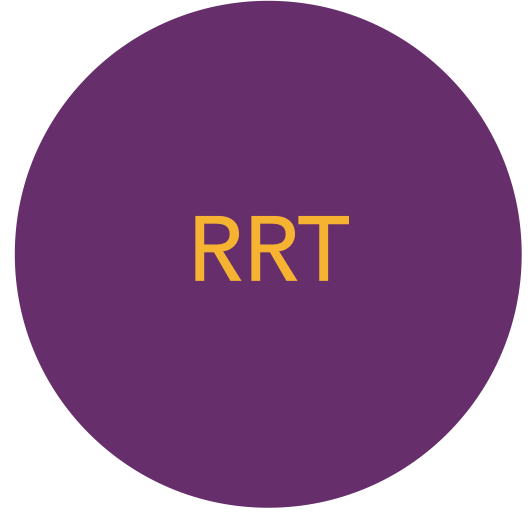

presence of or change in pneumothorax or subcutaneous emphysema, othere extrapulmonary air, consolidation and/or atelectasis, pulmonary infiltrates. position of endotracheal or tracheostomy tube. presence of dyspnea and/or orthopnea, work of breathing, sputum production, exercise tolerance and activities of daily living. level of consciousness/sedation, orientation to time, place and person, emotional state, ability to cooperate, level of pain. assess patient’s overall cardiopulmonary status by auscultation to determine presence of. asymmetrical chest movements, tactile fremitus, crepitus, tenderness, secretions in the airway, tracheal deviation. assess patient’s overall cardiopulonary status by palpation to determine.  transillumination of chest, Apgar score, gestational age. cough, amount and character of sputum and. assess patient’s overall cardiopulmonary status by inspection determine. Collect and Evaluate Additional Pertinent Clinical Information. maternal and paternal/neonatal history and data. physical examination relative to the cardiopulmonary system. Review Existing Data in the Patient Record including:. Upon completion of this course, the student will be able to: Patient Data Evaluation and Recommendations The following objectives reflect the National Board for Respiratory Care (NBRC) Summary Content Outline for Certified Respiratory Therapist (CRT) and Registered Respiratory Therapist (RRT) Examinations. Successful completion of this course requires the student to pass the CRT self-assessment exam, as well as the RRT writren and clinical simulation self-assessment exams. If you want to transfer in credits, we can typically review your transcripts of prior learning in less than one business day.The purpose of this course is to help prepare the student for the Certified Respiratory Therapist (CRT) and Registered Respiratory Therapist (RRT) exams. We are veteran-friendly, and we understand and respect the needs of veteran students. You will find comprehensive support services that will get you through college and into a great career. Financial aid is available, and we're still accepting applications. Enrollment is hassle-free, and it's easy to get started. Learn more about our associate degree in Respiratory Care. For more information on exam eligibility, please visit: The National Board for Resipiratory Care. Individuals who pass both the TMC and CSE examinations will receive the RRT credential.
transillumination of chest, Apgar score, gestational age. cough, amount and character of sputum and. assess patient’s overall cardiopulmonary status by inspection determine. Collect and Evaluate Additional Pertinent Clinical Information. maternal and paternal/neonatal history and data. physical examination relative to the cardiopulmonary system. Review Existing Data in the Patient Record including:. Upon completion of this course, the student will be able to: Patient Data Evaluation and Recommendations The following objectives reflect the National Board for Respiratory Care (NBRC) Summary Content Outline for Certified Respiratory Therapist (CRT) and Registered Respiratory Therapist (RRT) Examinations. Successful completion of this course requires the student to pass the CRT self-assessment exam, as well as the RRT writren and clinical simulation self-assessment exams. If you want to transfer in credits, we can typically review your transcripts of prior learning in less than one business day.The purpose of this course is to help prepare the student for the Certified Respiratory Therapist (CRT) and Registered Respiratory Therapist (RRT) exams. We are veteran-friendly, and we understand and respect the needs of veteran students. You will find comprehensive support services that will get you through college and into a great career. Financial aid is available, and we're still accepting applications. Enrollment is hassle-free, and it's easy to get started. Learn more about our associate degree in Respiratory Care. For more information on exam eligibility, please visit: The National Board for Resipiratory Care. Individuals who pass both the TMC and CSE examinations will receive the RRT credential. 
Individuals who earn and maintain a RRT credential may benefit from new career opportunities with higher salaries at high quality institutions. The TMC Examination evaluates the abilities of entry-level respiratory therapists necessary to enter into practice and determines eligibility for the Clinical Simulation Examination (CSE). Therapist Multiple-Choice (TMC) Examination.
RESPIRATORY THERAPIST CLINICAL SIMULATION EXAM SERIES
The RRT credential is earned through a series of two examinations: RRT Credentials must be maintained through continuing education or examination through the NBRC's Continuing Competency Program. The RRT credential is administered by the National Board of Respiratory Care (NBRC).
.jpg)
The Registered Respiratory Therapist (RRT) credential is the nationally recognized "standard of excellence" for respiratory care professionals that demonstrates competency of essential respiratory care knowledge, skills, and abilities. Registered Respiratory Therapist (RRT) Credential What is the Registered Respiratory Therapist (RRT) Credential?
Goodwin Institute for Learning Innovation.




.jpg)


 0 kommentar(er)
0 kommentar(er)
